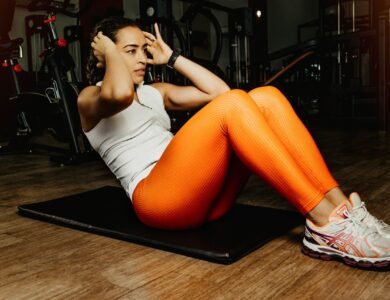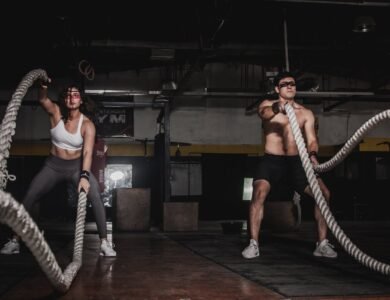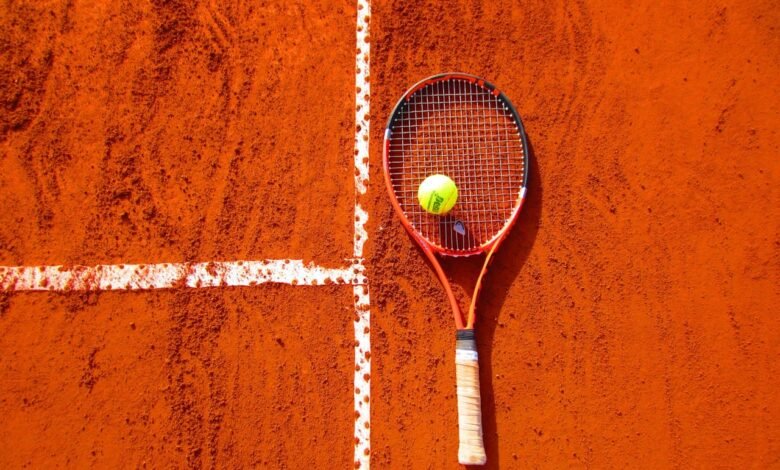
Athletic equipment takes a beating during workouts and sports activities. From sweat-soaked jerseys to mud-caked cleats, keeping your gear clean is essential not just for hygiene but also for extending its lifespan. The good news is you don’t need expensive specialty products to keep your athletic equipment in top shape. This guide provides effective DIY cleaning solutions that are budget-friendly and actually work.
Why Regular Cleaning Matters
Before diving into cleaning methods, it’s important to understand why cleaning your athletic gear regularly is crucial:
- Prevents bacteria growth and unpleasant odors
- Extends the life of expensive equipment
- Maintains performance features of technical fabrics
- Reduces the risk of skin infections and irritations
- Preserves the appearance of your gear
Regular maintenance doesn’t have to be time-consuming or expensive. With the right approach, you can keep your equipment clean, fresh, and functional without breaking the bank.
Essential DIY Cleaning Supplies
Most effective cleaning solutions can be made with common household items. Here’s what you’ll need:
- White vinegar
- Baking soda
- Mild dish soap or laundry detergent
- Hydrogen peroxide
- Microfiber cloths
- Soft-bristle brushes (old toothbrushes work great)
- Spray bottles
- Bucket or basin
- Salt (for stubborn stains)
- Bleach (for select items only)
These basic supplies will handle most cleaning challenges without the need for expensive specialty products.
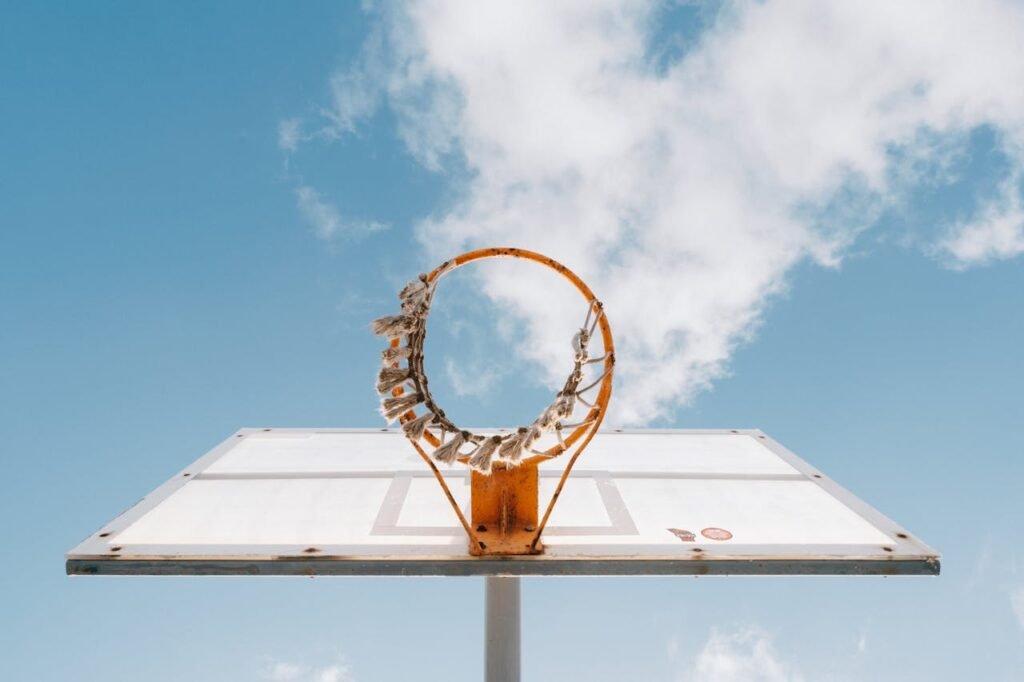
DIY Cleaning Solutions
1. All-Purpose Sports Equipment Cleaner
Ingredients:
- 1 cup water
- 1/4 cup white vinegar
- 2 tablespoons dish soap
Instructions:
- Mix all ingredients in a spray bottle
- Shake well before each use
- Spray on equipment and wipe with a microfiber cloth
- For stubborn areas, let sit for 5-10 minutes before wiping
This solution works well for most hard surfaces including plastic protective gear, weight benches, and exercise equipment.
2. Homemade Disinfectant Solution
Ingredients:
- 5 tablespoons (1/3 cup) bleach per gallon of water
Instructions:
- Mix in a well-ventilated area
- Use on hard, non-porous surfaces only
- Let solution sit on surface for 6 minutes
- Rinse thoroughly with clean water
- Allow to air dry completely15
Note: Never use bleach on colored fabrics, leather, or spandex materials.
3. Odor-Eliminating Spray
Ingredients:
- 1 cup water
- 1/2 cup white vinegar
- 10 drops of essential oil (optional for fragrance)
Instructions:
- Combine ingredients in a spray bottle
- Shake well
- Spray lightly on fabric equipment after use
- Allow to air dry completely
This spray helps neutralize odors between deep cleanings.
Cleaning Different Types of Athletic Equipment
Athletic Clothing and Uniforms
Athletic wear requires special care due to its technical fabrics and performance features:
- Turn garments inside out before washing to better clean areas that contact skin
- Use cold water to preserve elasticity and prevent shrinking
- Avoid fabric softeners which can trap odors and affect moisture-wicking properties
- For stubborn sweat stains:
- Soak in a solution of warm water and white vinegar
- Apply a paste of baking soda, salt, and hydrogen peroxide directly to stains
- Let sit for 5-10 minutes
- Wash in cold water with a plant-based detergent2
- Always air dry athletic wear to maintain shape and performance features2
Shoes and Cleats
Sports footwear collects dirt, sweat, and odors quickly:
- Remove excess dirt by clapping shoes together outdoors
- Remove insoles and laces
- Wash laces separately in a mesh laundry bag
- For the shoes:
- Wipe down with a damp cloth and mild soap solution
- Use an old toothbrush to clean grooves and hard-to-reach areas
- Stuff with newspaper to absorb moisture and maintain shape while drying
- Allow to air dry completely away from direct heat or sunlight
- For persistent odors, sprinkle baking soda inside shoes and let sit overnight before shaking out
Protective Gear (Helmets, Pads, Guards)
Protective equipment requires regular cleaning to prevent bacterial growth:
- Wipe down after each use with disinfectant spray or wipes
- For deeper cleaning:
- Fill a basin with warm water and mild detergent
- Use a soft cloth or sponge to clean surfaces
- Pay special attention to straps and areas that contact skin
- Rinse thoroughly with clean water
- Air dry completely before storing3
- For helmets:
- Fill a bathtub with warm water and baby shampoo
- Use a sponge or toothbrush to clean nooks and crannies
- Pay special attention to chin guards
- Rinse thoroughly and air dry1
Yoga Mats and Exercise Mats
Exercise mats collect sweat and bacteria with every use:
- Create a cleaning solution of equal parts water and white vinegar with a few drops of mild dish soap
- Spray the solution lightly over the mat
- Wipe with a clean, damp cloth
- Rinse with a clean, damp cloth to remove soap residue
- Hang to dry completely before rolling up for storage7
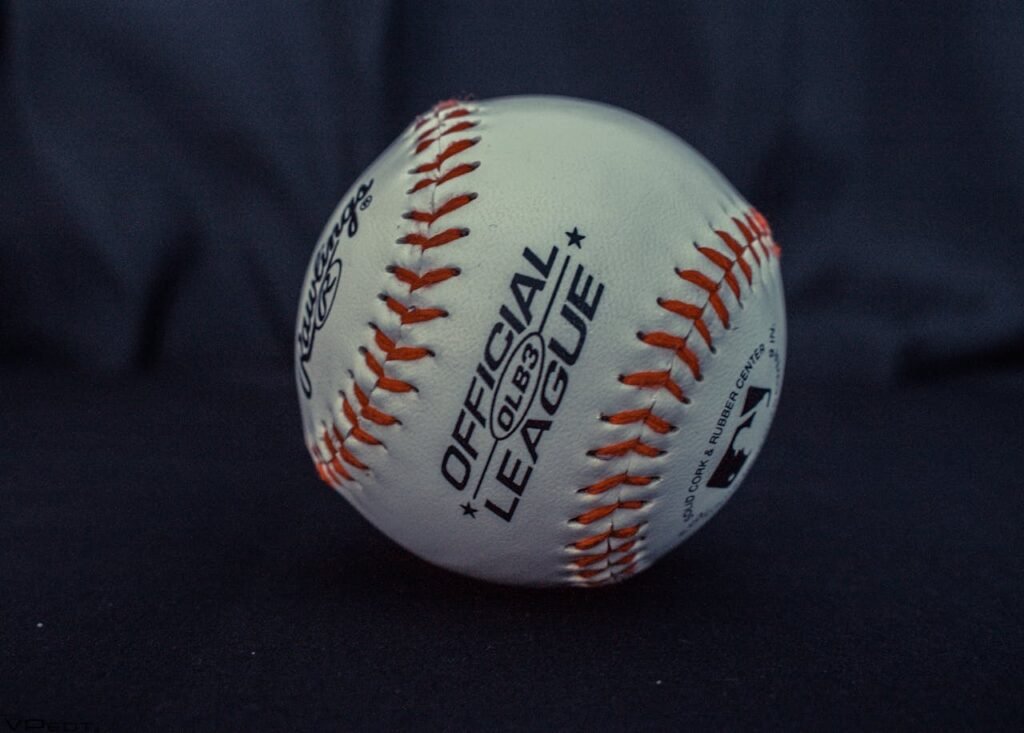
Weight Equipment and Gym Machines
For home gym equipment:
- Dust surfaces first to remove loose particles
- Apply all-purpose cleaner to a microfiber cloth (not directly on equipment)
- Wipe down all surfaces, paying special attention to handles and adjustment pins
- For stubborn grime on metal surfaces:
- Create a paste with baking soda and water
- Apply to affected areas
- Let sit for several minutes
- Wipe clean and dry thoroughly8
Cleaning Schedule for Athletic Equipment
| Equipment Type | After Each Use | Weekly | Monthly |
|---|---|---|---|
| Athletic Clothing | Air out, spray with odor eliminator | Machine wash | Deep clean stains |
| Shoes/Cleats | Remove dirt, air out | Wipe down with damp cloth | Deep clean with soap solution |
| Protective Gear | Wipe down, air out | Disinfect surfaces | Deep clean with soap and water |
| Exercise Mats | Wipe down | Spray with disinfectant | Deep clean with soap solution |
| Weights/Machines | Wipe down | Disinfect handles | Deep clean all surfaces |
| Sports Bags | Air out | Wipe down exterior | Machine wash (if fabric) |
Prevention Tips for Cleaner Equipment
Preventing excessive dirt and odor buildup makes cleaning easier:
- Air out equipment immediately after use instead of leaving in closed bags
- Use silica pads in sports bags to absorb moisture
- Rotate between multiple pairs of shoes if possible
- Wear moisture-wicking base layers under protective equipment
- Clearly label all gear to avoid mix-ups when sharing equipment1
- Apply preventative sprays to equipment after cleaning
Special Considerations for Team Equipment
When dealing with shared equipment for teams:
- Designate a parent volunteer or team member to oversee equipment cleaning
- Create a rotation schedule for deep cleaning shared items
- Encourage players to:
- Wash hands before and after practice
- Bring their own personal items when possible
- Use hand sanitizer before handling shared equipment1
- Keep disinfectant wipes or spray accessible during practices and games
Eco-Friendly Cleaning Options
For environmentally conscious athletes:
- Use white vinegar and baking soda as natural disinfectants
- Choose plant-based detergents for washing fabrics
- Opt for microfiber cloths instead of disposable wipes
- Make your own cleaning solutions in reusable spray bottles
- Choose biodegradable soap options when available
Frequently Asked Questions
Q: How often should I wash my workout clothes?
A: Ideally after every use. Leaving sweaty clothes in a hamper or gym bag promotes bacteria growth and makes odors harder to remove.
Q: Can I put my athletic shoes in the washing machine?
A: It’s generally not recommended as it can damage the structure and supportive features. Hand cleaning is safer for maintaining shoe integrity.
Q: What’s the best way to remove sweat stains from white uniforms?
A: Create a paste with baking soda, hydrogen peroxide, and water. Apply to stains, let sit for 30 minutes, then wash normally in cold water.
Q: How can I keep my gym bag from smelling?
A: Empty it after each use, wipe down the interior with disinfectant wipes weekly, use odor-absorbing products like baking soda sachets, and wash fabric bags monthly.
Q: Is it safe to use bleach on sports equipment?
A: Bleach should only be used on white, colorfast fabrics and hard, non-porous surfaces. Never use on colored items, leather, or specialized materials without checking manufacturer guidelines.
Q: How do I clean equipment that can’t get wet?
A: Use disinfectant wipes or a very lightly dampened cloth with a mild cleaning solution. Follow by wiping with a dry cloth to remove any moisture.
When to Replace Athletic Equipment
Even with proper cleaning, athletic equipment eventually wears out. Look for these signs that it’s time for replacement:
- Visible damage like cracks, tears, or excessive wear
- Persistent odors that don’t respond to cleaning
- Breakdown of cushioning or supportive features
- Discoloration that doesn’t improve with cleaning
- Equipment that no longer fits properly
Investing in new equipment when needed is important for both performance and safety.
Conclusion
Keeping athletic equipment clean doesn’t require expensive specialty products or complicated procedures. With these DIY solutions and regular maintenance, you can extend the life of your gear while ensuring it remains hygienic and odor-free. Establish a cleaning routine that works for your schedule, and you’ll enjoy fresher, longer-lasting athletic equipment that performs at its best when you need it most.
Remember that prevention is key—taking a few minutes to properly care for your gear after each use saves time and effort in the long run. Your equipment works hard for you during training and competition; return the favor by keeping it clean and well-maintained.
